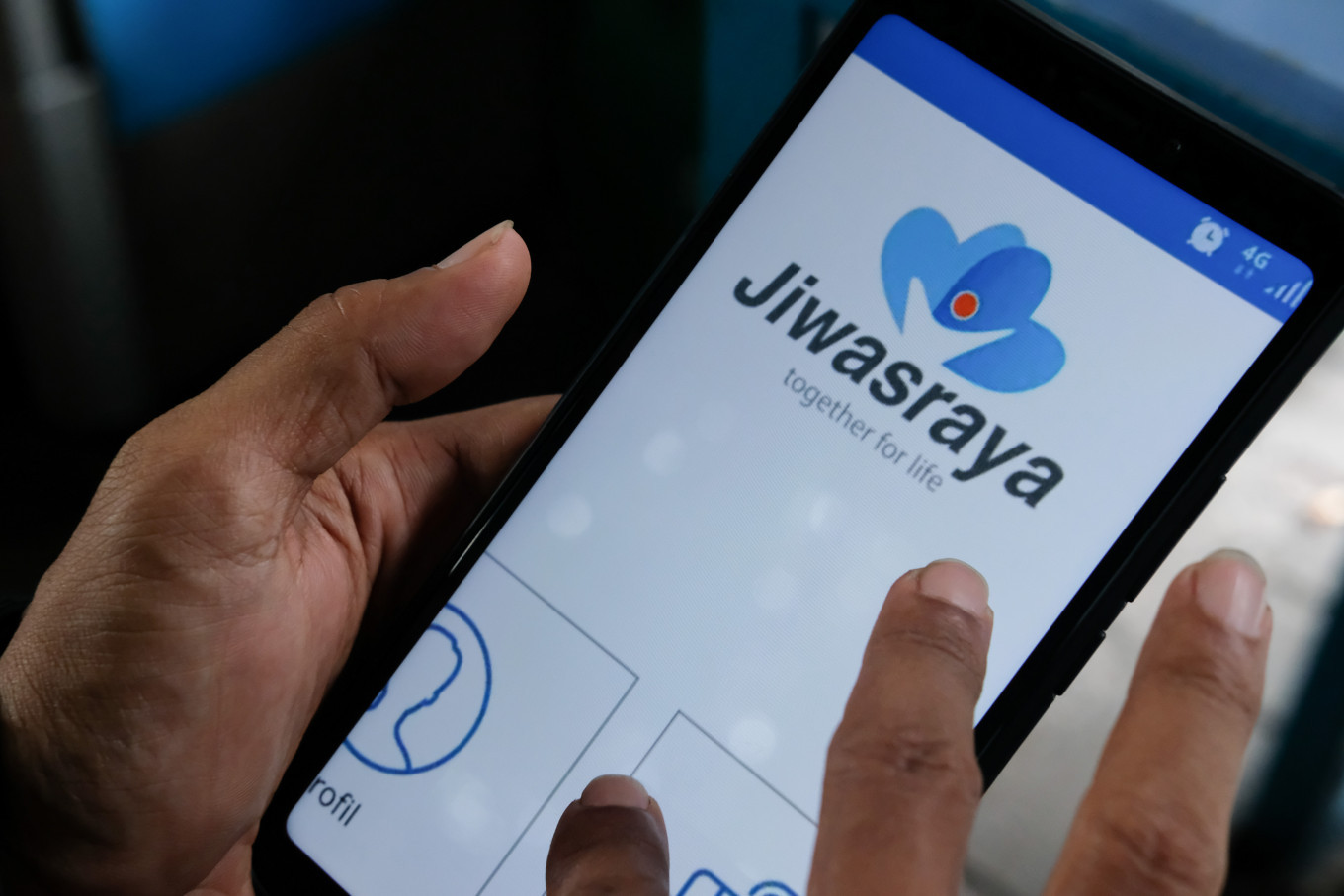Popular Reads
Top Results
Can't find what you're looking for?
View all search resultsPopular Reads
Top Results
Can't find what you're looking for?
View all search resultsGovt injects $1.5b to save Jiwasraya
State-owned insurance holding company PT Bahana Pembangunan Usaha Indonesia (BPUI) president director Robertus Biliteus said on Sunday the funds would be injected into BPUI in two tranches, in 2021 and 2022.
Change text size
Gift Premium Articles
to Anyone
T
he government and the House of Representatives have agreed to a Rp 22 trillion (US$1.49 billion) state capital injection to rescue ailing state-owned insurance company PT Asuransi Jiwasraya.
State-owned insurance holding company PT Bahana Pembangunan Usaha Indonesia (BPUI) president director Robertus Biliteus said on Sunday the funds would be injected into BPUI in two tranches.
“The government will inject Rp 12 trillion in 2021 and the remaining Rp 10 trillion in 2022, with the funds to be used to form a new state-owned life insurer, namely IFG Life,” he said during a virtual press briefing.
All of Jiwasraya’s restructured policies would then be transferred to and settled and managed by IFG Life. The policies include Jiwasraya’s traditional and JS Saving Plan products, he said.
Jiwasraya is embroiled in a corruption and money laundering case following its failure to pay out Rp 18 trillion in matured policies due in May to its policyholders. The Attorney General’s Office (AGO) accuses the insurer of investment mismanagement when it invested its premium revenue from the JS Saving Plan, one of the company’s unit-linked products, in pumped-and-dumped stocks.
Robertus went on to say that the newly established firm would also provide other insurance products, such as health insurance and pension funds, that would focus on protection rather than investment.
“We’re currently in the process of establishing IFG Life and we hope we can get a permit from the Financial Services Authority (OJK) by December,” he said.
Robertus also insisted that the state capital injection was not a bail out from the government, but rather a bail in as the government, who held a 100 percent stake in Jiwasraya, was stepping in as its shareholder to save the company.
Jiwasraya president director Hexana Tri Sasongko said the firm “badly needed” the state-capital injection to settle the due policies because it no longer had the financial capacity to do so.
The firm and IFG Life, he stressed, would prioritize settling traditional or pure insurance policies that were mostly owned by pensioners from the lower-middle class segment. However, all policies will receive payment settlements in stages.
Traditional policy holders constituted about 90 percent of the total 2.63 million Jiwasraya policyholders as of August, Hexana said.
“We will make adjustments to the benefits because we found that many of the policies were offering a much higher return than the market,” he said, adding that the benefits would be adjusted according to the market return during the period of 2008 to 2020.
The JS Saving Plan, for instance, offered a return of between 9 and 13 percent, almost twice the amount of return offered by the time deposit of 5 to 7 percent.
A JS Saving Plan policyholder, Rudhyanto, deemed the scheme to be unfair.
“Anybody in this position would not agree with the fair price assessment because it is not included in the policy agreement,” he told The Jakarta Post on Monday.
Insurance expert Irvan Rahardjo told the Post that the adjustment, albeit unfair, was inevitable as the prior management set a return than was much too high compared to the market.
“The public may not agree with the government’s decision to use taxpayers’ money to save Jiwasraya, whose problems clearly stemmed from fraud, but I think this is the most realistic option to save it,” he said.
The government previously proposed several measures to the House to save Jiwasraya, including asset recovery and business-to-business (B2B) schemes.
In the asset recovery scheme, the government proposed that the assets seized from the defendants would go into Jiwasraya to help finance the policy restructuring. In the meantime, Jiwasraya and the government would look for investors that would invest in Jiwasraya’s subsidiary in the B2B scheme.
However, it was not guaranteed that the plan to save Jiwasraya would restore the public’s trust in the insurance industry, which was tainted by the investment mismanagement case, which resulted in Rp 16.8 trillion in state losses.
“The government needs to work extra hard to restore the trust. They also need to establish the policy guarantee agency (LPP) as mandated in the 2014 Insurance Law,” Irvan said.










